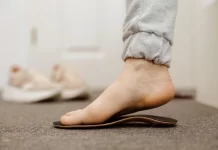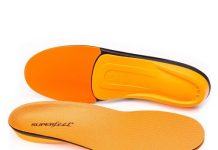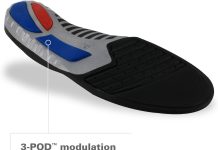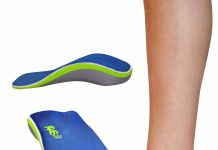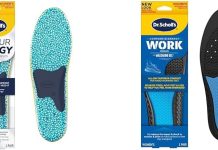Are you looking to take your vertical jump to new heights? Look no further than the best insoles for higher jumps. These game-changing inserts are designed to optimize your performance by providing cushioning, support, and stability to your feet.
Whether you’re an athlete looking to dominate on the court or improve your overall vertical prowess, these insoles are the secret weapon you’ve been searching for.
Say goodbye to sore feet and hello to soaring jumps with the best insoles on the market.
Benefits of Using Insoles for Vertical Jump
Increased vertical leap
Using insoles designed for vertical jump can significantly enhance your ability to jump higher. The extra support and cushioning provided by these insoles allow for a more efficient transfer of energy from the ground, resulting in increased power and explosiveness in your jump. You can take your vertical leap to new heights by wearing the right insoles.
Improved stability and balance
Insoles for vertical jumps provide extra cushioning and improve stability and balance during takeoff and landing. The added support helps to align the foot and ankle, reducing the risk of rolling or twisting during high-intensity jumps. This stability and balance improve your performance and lower the chances of injury.
Reduced risk of injury
Insoles designed for vertical jumps often incorporate features that help minimize the risk of injuries commonly associated with jumping sports. These insoles offer supportive padding and shock absorption properties that can help protect your feet, ankles, and knees from the repetitive impact and stress of jumping. Insoles can help prevent injuries and keep you in the game by reducing the strain on your joints and soft tissues.
Enhanced overall performance
The combination of increased vertical leap, improved stability, and reduced risk of injury ultimately leads to enhanced overall performance. With the right insoles, you’ll be able to jump higher, land more securely, and maintain proper form and technique throughout your jumps. This performance improvement can significantly affect various sports and activities that rely on vertical power, such as basketball, volleyball, and track and field events.
Factors to Consider when Choosing Insoles for Vertical Jump
Material
The material of the insoles plays a crucial role in providing comfort, support, and durability. Common materials used in insoles include gel, memory foam, EVA foam, and orthotic materials. Gel insoles offer shock absorption, while memory foam provides a custom fit and pressure relief. EVA foam insoles are lightweight and offer good cushioning, and orthotic insoles are specially designed to provide personalized support for various foot conditions.
Thickness
The thickness of the insoles is an essential factor to consider, as it can affect the fit of your shoes and the level of support and cushioning provided. Thicker insoles generally offer more cushioning and shock absorption, but they may require shoes with extra room to accommodate the added height. Thinner insoles, on the other hand, can provide support without significantly altering the fit of your shoes.
Arch support
Proper arch support is crucial for maintaining proper alignment and reducing the risk of injuries during vertical jumps. Insoles with arch support help distribute weight evenly, preventing excessive strain on the arches of your feet. Look for insoles with customizable arch support, or choose ones specifically designed for your arch type (high, medium, or low).
Cushioning
Cushioning is essential for absorbing the impact forces generated during jumps and landings. Look for insoles that provide adequate cushioning to minimize the stress on your joints and soft tissues. Additionally, consider your cushioning preferences, as some prefer a softer feel while others prefer firmer support.
Shock absorption
Insoles that offer good shock absorption properties can help protect your feet and joints from the repetitive impact of jumping. Look for insoles with advanced shock-absorbing materials or features to minimize the strain on your body. Effective shock absorption can reduce the risk of injury and enhance your performance by allowing you to jump with more comfort and confidence.
Durability
When choosing insoles for vertical jumps, it is essential to consider their durability. The insoles should withstand the rigors of intense jumping and provide long-lasting support. Look for insoles made from high-quality materials that are known for their durability. Reading customer reviews and choosing reputable brands can also help you invest in insoles that will stand the test of time.
Sizing and fit
To get the most out of your insoles, choosing the right size and fit is crucial. Insoles that are too small or too large may not provide the intended support and cushioning. Take accurate measurements of your feet and refer to the manufacturer’s sizing charts to determine the correct size. Additionally, consider the shoe type you will be using the insoles with, as some insoles may be more suitable for specific types of shoes, such as athletic sneakers or basketball shoes.
Breathability
During high-intensity activities like jumping, your feet can generate significant heat and moisture. Insoles with good breathability help to wick away moisture and keep your feet dry and comfortable. Look for insoles made from breathable materials, such as mesh or perforated designs, to ensure optimal airflow and prevent odors and discomfort.
This image is the property of Amazon.com.
Different Types of Insoles for Vertical Jump
Gel insoles
Gel insoles are popular among athletes due to their excellent shock absorption properties. The gel material helps to distribute and dissipate the impact forces evenly, reducing the strain on your feet and joints. Gel insoles are cushioned and supportive, making them ideal for vertical jump training and other high-impact activities.
Memory foam insoles
Memory foam insoles mold and adapt to the shape of your feet, providing a custom fit and personalized support. The foam material responds to your body heat, so each time you put on the insoles, they conform to the unique contours of your feet. Memory foam insoles offer superior comfort and pressure relief, making them popular for individuals seeking maximum cushioning during vertical jumps.
EVA foam insoles
EVA foam insoles are lightweight and offer excellent shock absorption and cushioning properties. The foam provides support and stability while keeping the insoles lightweight and flexible. EVA foam insoles are known for their durability and can withstand the repetitive impact of jumping.
Air cushion insoles
Air cushion insoles feature air pockets or chambers that provide additional cushioning and shock absorption. These insoles are adjustable, allowing you to customize the level of support and comfort by inflating or deflating the air chambers. Air cushion insoles are highly versatile and can be used for various sports and activities.
Orthotic insoles
Orthotic insoles are designed to provide customized support for individuals with specific foot conditions or imbalances. They can help correct pronation or supination issues, provide arch support, and improve overall foot alignment. Healthcare professionals often recommend orthotic insoles, which can benefit vertical jump training by ensuring proper alignment and reducing the risk of injuries.
Top Brands for Insoles
Superfeet
Superfeet is a well-known and trusted brand in the field of insole technology. They offer various insoles designed for various activities, including vertical jump training. Superfeet insoles are known for their high-quality materials, durability, practical support, and cushioning properties.
Powerstep
Powerstep is another famous brand that provides top-quality insoles for athletes and active individuals. Their insoles offer excellent arch support, shock absorption, and comfort. Powerstep’s products are designed to enhance performance and reduce foot fatigue, making them an excellent choice for vertical jump training.
Sof Sole
Sof Sole is a brand that offers a diverse range of insoles suitable for different sports and activities, including jumping sports. Their insoles are known for their durability, cushioning, and moisture-wicking properties. Sof Sole insoles provide excellent comfort and support for vertical jump training and can help improve overall performance.
Spenco
Spenco is a brand specializing in foot care products for decades. Their insoles are designed to provide maximum comfort, support, and shock absorption. Professionals often recommend Spenco insoles, which are highly regarded for their quality and performance.
Dr. Scholl’s
Dr. Scholl’s is a well-known brand that offers a wide range of foot care products, including insoles. Their insoles are designed to provide targeted support, cushioning, and shock absorption. Dr. Scholl’s insoles are affordable and readily available, making them popular among individuals seeking comfort and support during vertical jumps.
This image is the property of i.ytimg.com.
Choosing the Right Size and Fit
Measure your foot size.
Before purchasing insoles for vertical jumps, measuring your foot size is essential. Use a measuring tape or ruler to measure the length and width of your foot. Refer to the manufacturer’s sizing charts to determine the appropriate size based on your measurements. Remember that different brands may have slightly different sizing, so it’s essential to consult the specific sizing information provided by the manufacturer.
Consider your shoe type.
When choosing insoles, consider the type of shoes you will be using them with. Different shoes have varying degrees of arch support and cushioning, so selecting insoles that complement your shoes’ features is essential. For example, if you have a pair of basketball shoes with minimal arch support, consider insoles that provide extra arch support to compensate for the shoe’s deficiencies.
Ensure proper arch support.
Proper arch support is crucial for maintaining foot stability and reducing the risk of injuries during vertical jumps. When choosing insoles, ensure they adequately support your arch type (high, medium, or low). Some insoles offer customizable arch support that can be adjusted to your needs. The insoles can help optimize your performance and prevent discomfort or injuries by providing the right level of support for your arches.
Check the insole thickness.
Consider the thickness of the insoles and how it will affect the fit of your shoes. Thicker insoles can provide more cushioning and shock absorption, but they may require shoes with extra room to accommodate the added height. If your shoes have a snug fit, opt for thinner insoles that offer support without significantly altering the fit. It is essential to balance comfort, support, and proper shoe fit to ensure the best possible performance during vertical jumps.
Insoles vs. Shoes for Jumping Higher
Insole-only approach
Insoles alone can significantly enhance your vertical jump, even without investing in specialized jumping shoes. The right insoles offer increased cushioning, support, and shock absorption, allowing you to generate more power and explosiveness in every jump. Insoles can be inserted into your existing athletic shoes, making them a cost-effective option for improving your jumping ability.
Combining insoles with proper shoes
While insoles alone can positively impact your vertical jump, combining them with proper jumping shoes can enhance your performance even further. Jumping shoes are designed to optimize vertical leaps by providing additional ankle support, lightweight construction, and specialized features like spring-loaded soles. When paired with the right insoles, jumping shoes can maximize your vertical jump potential and help you achieve even greater heights.
This image is the property of vktrygear.com.
How to Use Insoles for Vertical Jump Training
Start with gradual usage.
When incorporating insoles into your vertical jump training, it is important to start gradually. Begin by wearing the insoles for shorter durations during low-intensity activities to allow your feet and body to adjust to the new support and cushioning. As you become more comfortable and confident, gradually increase the duration and intensity of your jump training while wearing the insoles.
Correctly insert the insoles.
Ensure the insoles are correctly inserted into your shoes to achieve the desired support and cushioning. Follow the manufacturer’s instructions for insole placement, ensuring they are centered and aligned with your feet. This will help maximize the benefits and prevent the insoles from shifting or slipping during jumps.
Focus on proper form and technique.
Insoles can enhance your vertical jump, but it is essential to maintain proper form and technique during training. Focus on engaging the major muscle groups involved in the jump, such as the calves, quadriceps, and glutes. Concentrate on an explosive takeoff, utilizing the energy transfer facilitated by the insoles. Remember to land softly, absorbing the impact with the help of the insoles to reduce the strain on your joints.
Combine with other exercises and training methods.
To further improve your vertical jump, consider incorporating other exercises and training methods alongside insole usage. Plyometric exercises, strength training, and flexibility exercises can all contribute to incredible explosiveness, power, and overall performance. Combine these training methods with the support and cushioning provided by the insoles for optimal results.
Insoles for Specific Sports and Activities
Basketball
Basketball players rely heavily on vertical jump ability to excel in the game. Insoles explicitly designed for basketball can help improve performance by offering targeted support, cushioning, and shock absorption. Look for insoles that provide excellent lateral stability to support quick changes in direction and forefoot cushioning for optimal basketball-specific performance.
Volleyball
Volleyball players require explosive vertical jumps for powerful spikes and effective blocking. Insoles designed for volleyball help enhance jumping ability by providing excellent shock absorption, support, and stability. Look for insoles offering forefoot cushioning and lateral stability to support the quick movements and landing impact of volleyball.
Track and field
Track and field athletes, particularly those participating in vertical jump events like high jump or pole vault, can benefit from insoles that offer superior shock absorption, energy return, and support. Look for insoles that provide a combination of cushioning and responsiveness to help optimize takeoff and landing performance while minimizing the risk of injury.
Fitness and cross-training
Insoles designed for fitness and cross-training activities offer versatility and all-around support. These insoles typically provide a balanced combination of cushioning, shock absorption, stability, and responsiveness. Suitable for various sports and activities, fitness and cross-training insoles can enhance vertical jump performance while providing comfort and support.
This image is the property of cdn.accentuate.io.
Customer Reviews and Recommendations
Positive reviews on performance enhancement
Many users of vertical jump insoles have reported significantly improved jumping ability. Athletes have praised the insoles for increasing their vertical leap and allowing them to jump higher and more efficiently. Positive reviews often highlight the insoles’ cushioning, support, and shock absorption properties, emphasizing their positive impact on overall performance.
Personal experiences and success stories
Individuals who have incorporated insoles into their vertical jump training shared personal experiences and success stories. They speak of how the insoles have helped them overcome plateaus, achieve personal bests, and reach new performance levels. These firsthand accounts provide valuable insights into the effectiveness of insoles for vertical jump training and can inspire others seeking to improve their jumping ability.
Recommendations from athletes and trainers
Many athletes and trainers recommend the use of insoles for vertical jump training. Professionals in the field recognize insoles’ benefits in terms of increased vertical leap, stability, and injury prevention. Their recommendations help validate the effectiveness of insoles and provide additional assurance for individuals considering incorporating them into their training routine.
Conclusion
Insoles designed for vertical jump offer a range of benefits that can significantly enhance your jumping ability and overall performance. With increased vertical leap, improved stability and balance, reduced risk of injury, and enhanced power and explosiveness, insoles can take your vertical jump to new heights.
Material, thickness, arch support, cushioning, shock absorption, durability, sizing, and breathability should be considered when choosing insoles for vertical jumps. Various types of insoles are available, including gel insoles, memory foam insoles, EVA foam insoles, air cushion insoles, and orthotic insoles, each with unique features and benefits.
Top brands for insoles include Superfeet, Powerstep, Sof Sole, Spenco, and Dr. Scholl’s. Proper sizing and fit are crucial to ensure optimal support and comfort. While insoles can be used alone to enhance vertical jump, combining them with proper jumping shoes can maximize performance.
When using insoles for vertical jump training, it is important to start gradually, properly insert them, focus on proper form and technique, and combine them with other exercises and training methods. Different sports and activities may require specific insoles tailored to their unique demands.
Positive customer reviews, personal experiences, and recommendations from athletes and trainers reinforce the benefits of using insoles for vertical jump training. In conclusion, the right insoles can be a valuable tool to improve your vertical jump and optimize your athletic performance.
This image is the property of lermagazine.com.
VKTRY Performance Insoles - Gold VKs - Carbon Fiber Shock Absorbing Sport Shoe Insoles for Pro Running, Basketball, Athletics - Jump Higher, Improved Explosiveness, Injury Protection and Recovery
"踩屎感Chai Si Gan"Super Soft Insole, Specially Design for high Jump Sport ,20mm Height Increase, Shock Absorption ,high Elasticity for Men 11 or Women 13 (SP-01)
Silica Gel Sport Shoe Insole,MARRDO Spring Cushioning Shock Absorption Shoe Insert,Forefoot Enhances Massaging Footbeds,Plantar Fasciitis Sports Running Insoles for Men & Women (Medium 8.5-10, Black)
{New 2023} Sport Athletic Shoe Insoles Men Women - Ideal for Active Sports Walking Running Training Hiking Hockey - Extra Shock Absorption Inserts - Orthotic Comfort Insoles for Sneakers Running Shoes
VKTRY Performance Insoles - Silver VKs - Carbon Fiber Shock Absorbing Sport Shoe Insoles for Amateur Running, Basketball, Athletics - Improved Explosiveness, Injury Protection and Recovery
Carbon Fiber Insoles for Sport, Foot Support Performance Insoles for Athletes-Reduces Shock to Increase Energy Return & Injury-Preventing, Sport Insole fit for Playing Basketball,Soccer,Running, 245mm
Wilcomft Height Increase Insoles for Men and Women, Shoe Lifts Men Inserts Make You Taller 4-Layer 3.54 inch Air Cushion Pain Relief Invisible Breathable Adjustable Heel Lift Height Booster
Professional Running Insoles, Health Gifts for Men, Hapenss Carbon Fiber Insoles for Women, Relieve Foot Pain Plantar Fasciitis, Shock-Absorbing Insert Shoe Insoles, Men 7-7 1/2 | Women 9-9 1/2
Height Increase Insoles 4-Layer 3.54 inch Air Cushion Taller Shoes Insoles Heel Insert for Men and Women by ERGOfoot
$11.99 in stock

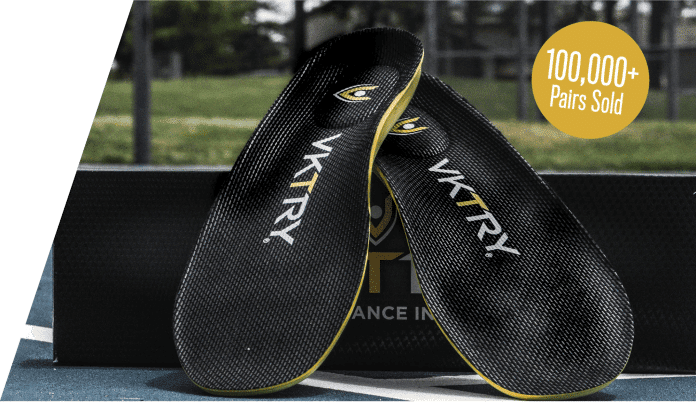
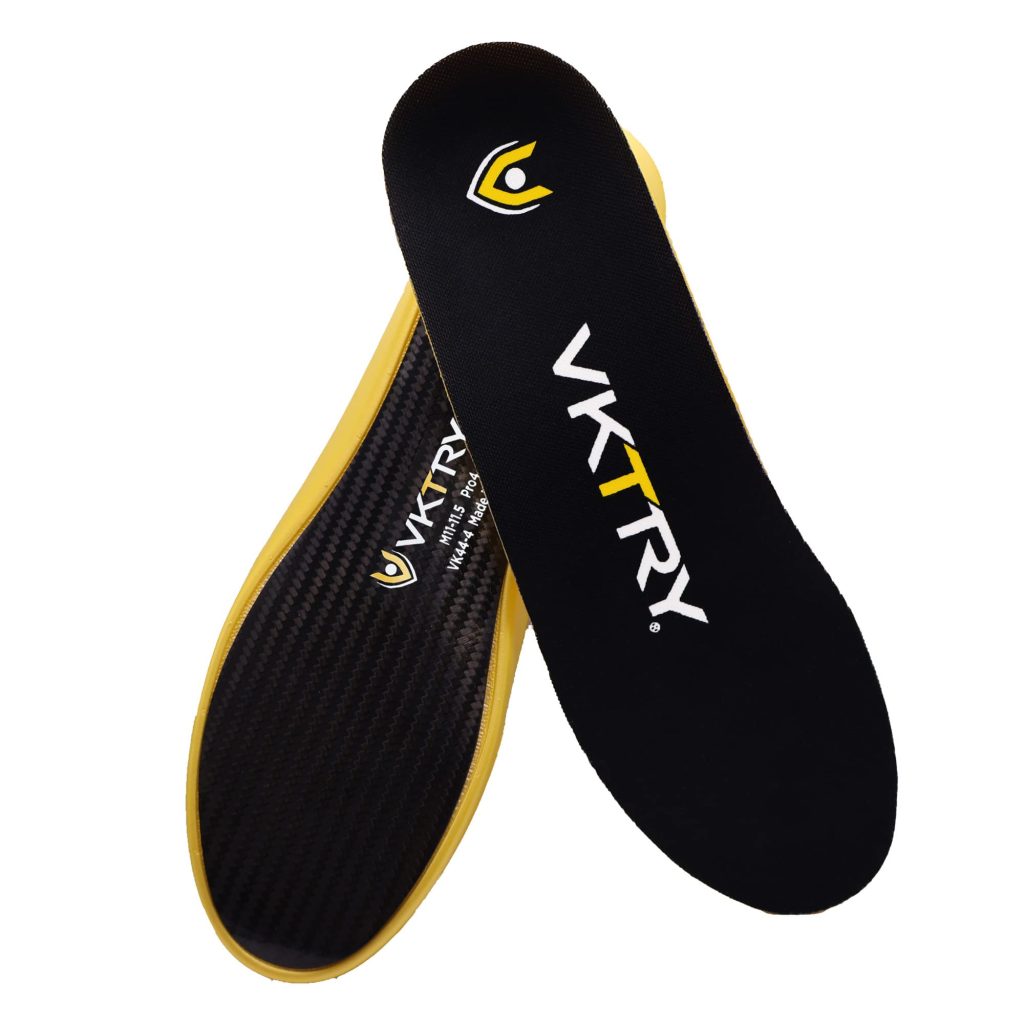
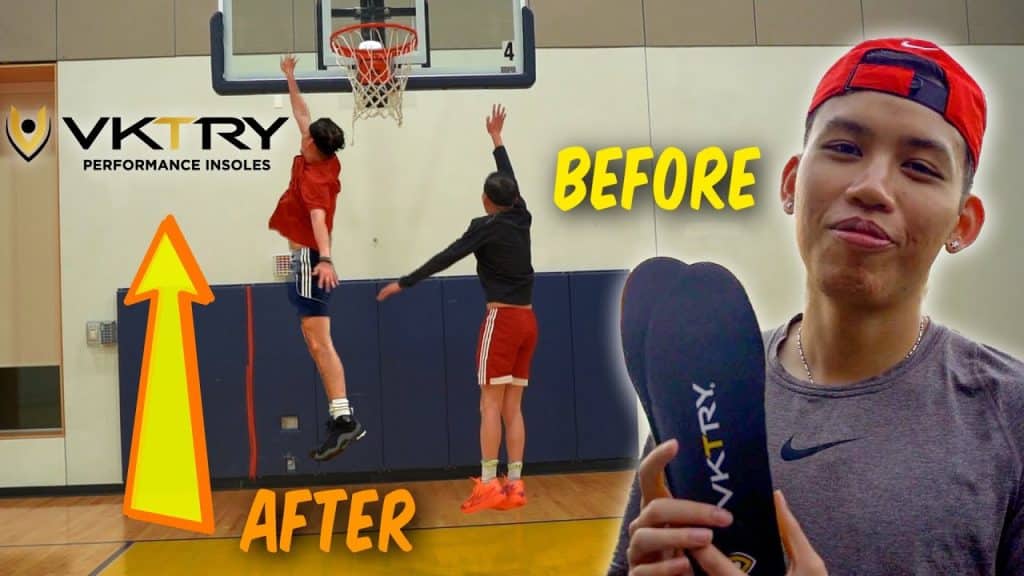
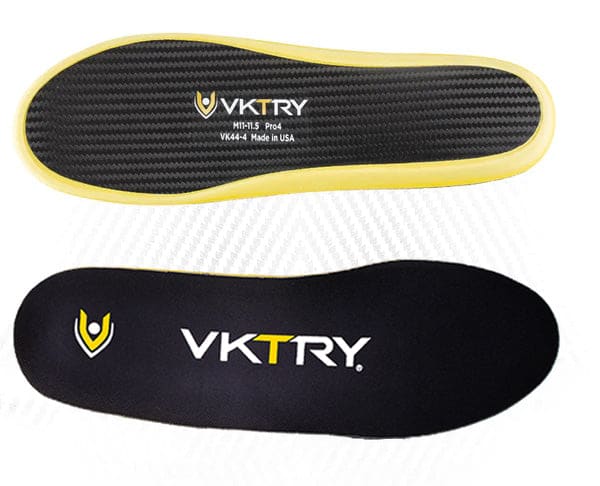
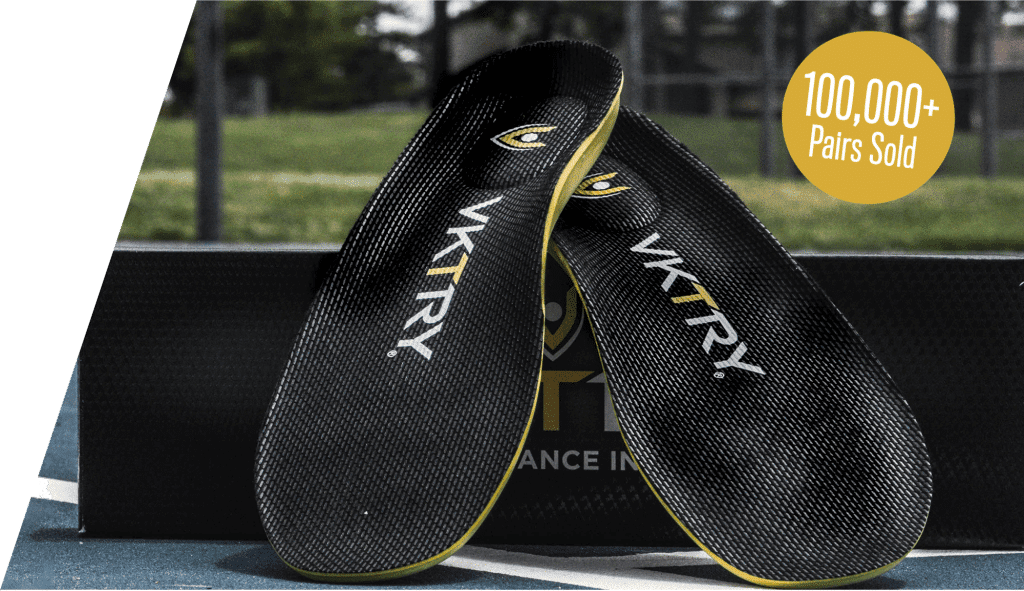
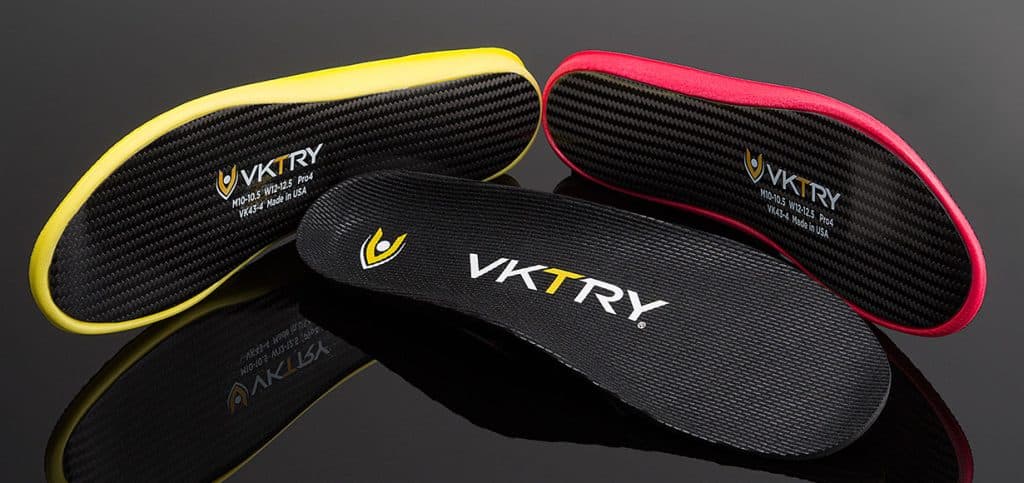









![Enhance Your Vertical Jump with the Best Insoles for Higher Jumps | Insoles FeelLife Plantar Fasciitis Relief Shoe Insoles [1-Pair], Arch Support Insoles, Running Athletic Gel Shoe Inserts, Orthotic Insoles for Arch Pain [Trim to Fit: Men 6-9/Women 7-10]](https://m.media-amazon.com/images/I/41wenlYrkjL._SS520_.jpg)
